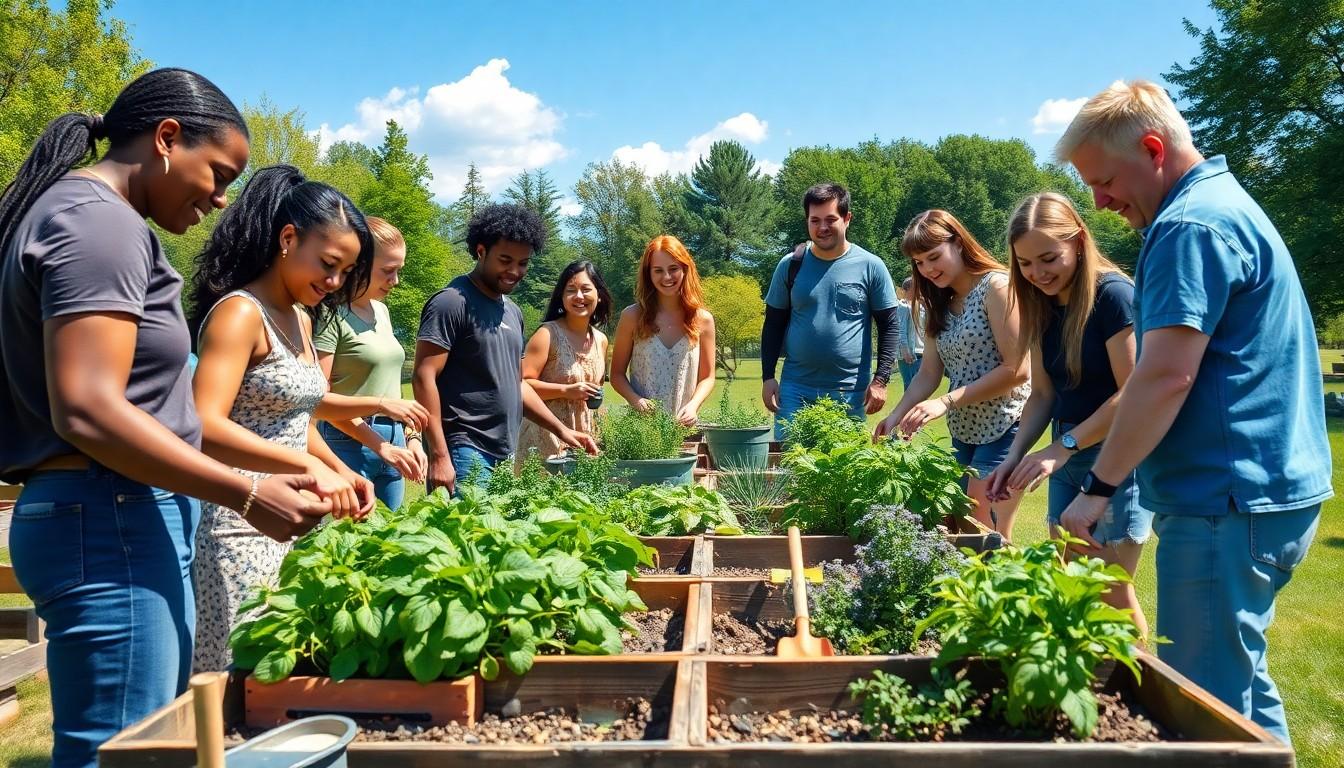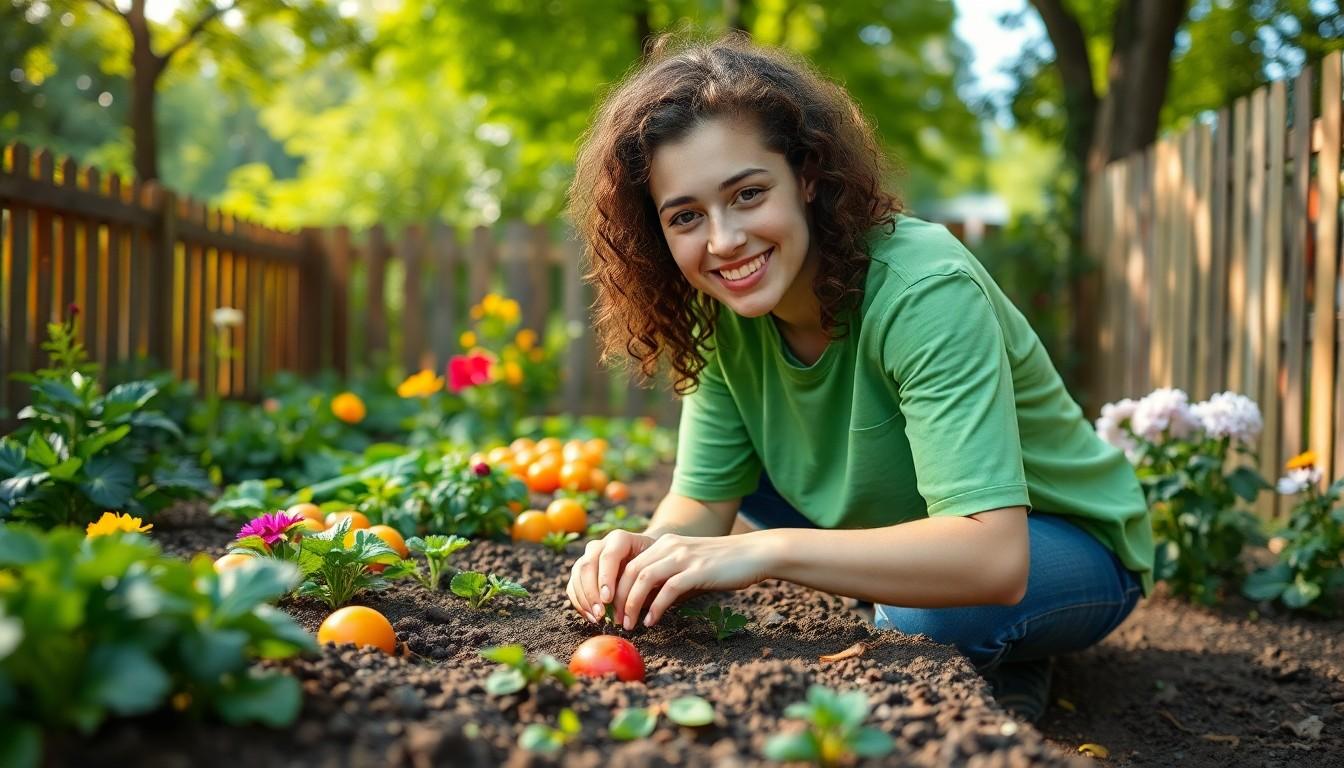In a world where plastic seems to multiply faster than rabbits and the climate’s throwing tantrums, it’s time to embrace a greener lifestyle. But fear not, eco-warriors! You don’t need to trade your morning coffee for kale smoothies just yet. The journey to sustainable living can be both enlightening and entertaining, especially with the right books in hand.
Best Books On Sustainable And Eco-Friendly Living
Sustainable living focuses on reducing an individual’s or society’s environmental impact. This approach seeks a balance between personal needs and ecological health, ensuring resources remain abundant for future generations. People often start by making small adjustments to their daily habits. For example, choosing reusable products over disposable ones significantly reduces plastic waste.
Many books on sustainable living emphasize the importance of mindful consumption. They often provide practical tips for reducing energy use, conserving water, and embracing a plant-based diet. Adopting these practices helps lower carbon footprints while promoting wellness.
Sustainable living also involves understanding the systems that contribute to climate change. Readers learn about the interconnectedness of agriculture, transportation, and waste management. Books that highlight these topics encourage readers to support local economies and sustainable practices. By engaging with these concepts, individuals gain insight into making informed decisions.
Additionally, education plays a vital role in promoting eco-friendly living. Literature that discusses environmental science opens readers’ eyes to how their choices affect the planet. Understanding these connections empowers individuals to advocate for stronger environmental policies.
Communities worldwide adopt sustainability initiatives, further showcasing this lifestyle’s appeal. Collaborative projects such as community gardens and recycling programs foster a sense of belonging and shared responsibility. Such efforts not only create a healthier environment but also build supportive networks around sustainable practices.
Ultimately, readers interested in sustainable living find a wealth of resources that demonstrate how enjoyable and fulfilling this lifestyle can be.
Importance of Eco-Friendly Literature

Eco-friendly literature plays a crucial role in promoting sustainable living. Readers gain insight into environmental issues and learn practical solutions through these books.
Benefits of Reading on Sustainability
Reading about sustainability offers numerous advantages. Education on environmental topics fosters awareness of pressing challenges like climate change. Practical advice found in these books helps individuals make informed decisions about daily habits. Engaging with eco-friendly literature also inspires creativity, leading to innovative solutions for reducing waste. By understanding the interconnectedness of ecosystems and human activities, readers become equipped to combat environmental degradation.
Influence on Lifestyle Choices
Books on sustainable living significantly influence lifestyle choices. Individuals often find themselves motivated to adopt eco-friendly practices after reading inspiring stories. Learning about the benefits of local food and minimalism encourages many to reconsider consumption habits. Awareness of product sourcing can drive choices toward sustainable brands. As readers discover the impact of their choices on the planet, they frequently modify behaviors to align with sustainability goals. Reading about real-world examples helps affirm that small changes can lead to meaningful improvements in individual lifestyles.
Top 5 Best Books on Sustainable and Eco-Friendly Living
These top books on sustainable living provide practical insights and encourage positive lifestyle changes. Each book showcases unique approaches and solutions, empowering readers to make informed choices.
Book 1: The Zero Waste Home by Bea Johnson
Bea Johnson’s The Zero Waste Home outlines practical strategies for reducing waste in daily life. Through her five-step system, readers learn to refuse unnecessary items, reduce consumption, reuse products, recycle responsibly, and rot organic waste. The book emphasizes that living a zero waste lifestyle is achievable, with real-life examples illustrating the positive effects on personal well-being and the environment.
Book 2: Braiding Sweetgrass by Robin Wall Kimmerer
In Braiding Sweetgrass, Robin Wall Kimmerer combines indigenous wisdom with scientific knowledge, urging readers to reconnect with nature. This book emphasizes reciprocity and respect toward the environment, encouraging people to adopt a more sustainable mindset. Kimmerer shares personal stories and insights into how plants and ecosystems can teach valuable lessons about stewardship and sustainability.
Book 3: Sustainable Home by Christine Liu
Christine Liu’s Sustainable Home focuses on eco-friendly home design and renovation. The book covers practical tips for creating a healthier living space, from choosing sustainable materials to implementing energy-efficient solutions. Liu’s detailed guidance helps readers make informed decisions that reduce environmental impact while enhancing comfort and style in their homes.
Book 4: This Changes Everything by Naomi Klein
Naomi Klein’s This Changes Everything explores the connection between climate change and capitalism. Klein argues that economic systems must change to address environmental problems effectively. The book provides case studies and calls for collective action, motivating readers to advocate for policies that prioritize sustainability and social justice.
Book 5: The New Organic Grower by Eliot Coleman
Eliot Coleman’s The New Organic Grower serves as an essential guide for aspiring organic farmers and gardeners. The book emphasizes sustainable agricultural practices that promote biodiversity and soil health. Coleman shares techniques for growing organic crops year-round, providing actionable steps for those passionate about nurturing the earth and producing healthy food.
How to Choose the Right Book for You
Choosing the right book on sustainable and eco-friendly living involves considering several factors. First, identify personal interests within the sustainability spectrum. Whether it’s waste reduction, renewable energy, or sustainable agriculture, focusing on a specific area provides direction.
Next, assess the author’s credentials and expertise. Authors like Bea Johnson and Robin Wall Kimmerer bring unique backgrounds and experiences to their writings. Insights from those knowledgeable in environmental science or eco-friendly practices often resonate more with readers.
Another important aspect is the book’s practical applicability. Look for texts that offer actionable tips and real-world examples, making the transition to a sustainable lifestyle seamless. Books with step-by-step guides or case studies help readers visualize their journey toward eco-friendliness.
Consider the writing style as well. Engaging narratives inspire individuals to connect emotionally with the content. Books that weave personal stories, scientific data, and cultural perspectives can enhance the reader’s experience.
Furthermore, research reviews and recommendations. Online platforms, libraries, and bookstores often provide ratings and reader feedback. Real-life impressions can guide potential readers toward books that align with their needs and interests.
Lastly, evaluate the book’s relevance to one’s lifestyle. Not every sustainable living guide fits every reader’s circumstances. Personal situations, such as living in an urban versus rural setting, influence which strategies will be most effective and feasible.
Selecting the best book means balancing all these elements to find a resource that truly resonates with personal goals for sustainable living.
Embracing Sustainable and Eco-friendly Living
Embracing sustainable and eco-friendly living is a journey that anyone can embark on. With the right resources at hand individuals can transform their lifestyles while making a positive impact on the planet. The recommended books serve as invaluable guides offering practical advice and inspiring stories that encourage readers to take actionable steps towards a greener future.
By engaging with these texts readers not only gain knowledge but also cultivate a deeper connection to the environment. This fosters a sense of community and shared responsibility essential for driving change. As they explore sustainable practices they’ll discover that even small changes can lead to significant improvements in their lives and the world around them.

